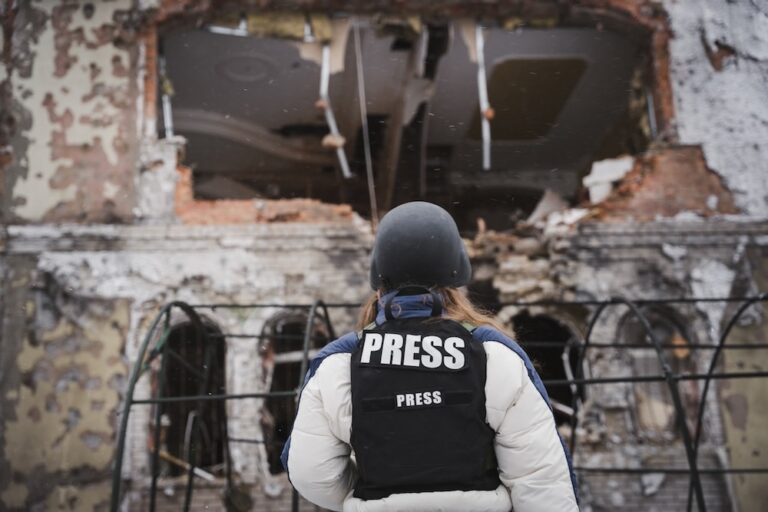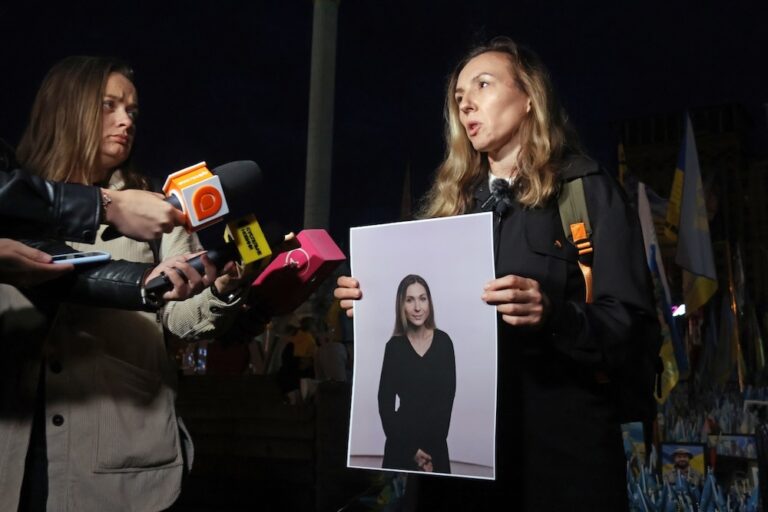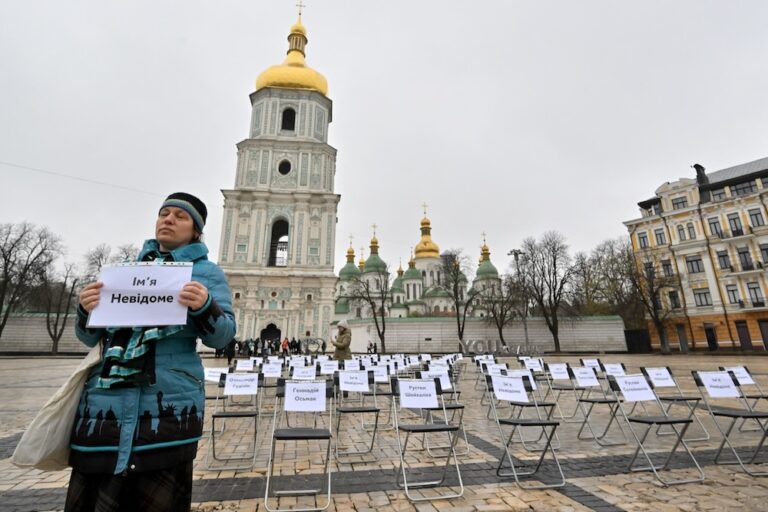(RSF/IFEX) – The following is a 29 March 2002 RSF press release: Elections will be held in Ukraine on 31 March 2002 after four years of grave deterioration in press freedom. Despite government promises made after pressure from the Council of Europe, there have been more and more physical attacks on journalists since the last […]
(RSF/IFEX) – The following is a 29 March 2002 RSF press release:
Elections will be held in Ukraine on 31 March 2002 after four years of grave deterioration in press freedom. Despite government promises made after pressure from the Council of Europe, there have been more and more physical attacks on journalists since the last elections in 1998, including 10 murders. The violence, which has increased in the run-up to the recent election, weighs heavily on the press’s right to inform freely and has been the greatest obstacle to freedom of expression.
On 24 March, the driver of a vehicle distributing copies of the newspaper Svoboda was physically attacked and most of the copies were destroyed. On 27 March, more than 100,000 copies of the newspaper 21st Century, in Lugansk, were seized.
Reporters Without Borders (RSF) correspondents in the country report that, since 1998, 10 journalists have been killed under mysterious circumstances and 41 others seriously injured in brutal attacks. This includes one killed and nine violently attacked in 1998, three killed and seven violently attacked in 1999 and four killed and seven violently attacked in 2000. In 2001, the toll was two killed and 18 violently attacked. Since 1 January 2002, one journalist has been killed in a mysterious traffic accident and seven physically attacked.
Most of the journalists were attacked in strangely similar ways (in the stairway of their apartment buildings, hit over the head). Moreover, most were working on stories about corruption involving the secret police militia, the state prosecutor’s office or local and national political and economic institutions, though some attacks were not clearly linked to journalism. Most of the perpetrators have not been identified and those that have been arrested (marginalised individuals, drug addicts) cast doubt on the seriousness of the investigation. In the most notorious cases of Georgy Gongadze, killed in 2000, and Igor Alexandrov, murdered in 2001, police and prosecutors openly obstructed the investigations. A number of the interior ministry’s militia (the SBU secret police) who were under suspicion were not investigated.
Such conditions guarantee impunity for the killers and attackers of journalists and this is the main threat to freedom of expression in Ukraine.


